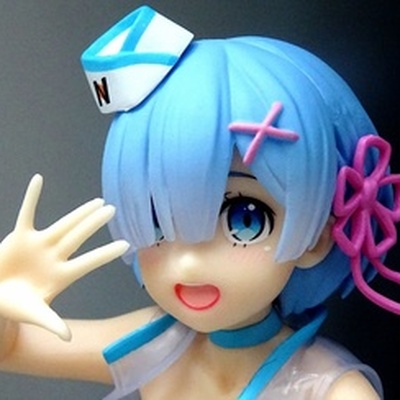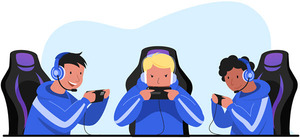The Past and Present of Philippine Esports
Posted By Han Cherry
Body
ESports, also called electronic sports, e-Sports, and egames, is described as competitive and organized video gaming. Dictionary.com defines this concept as “competitive tournaments of video games,” wherein it often takes form in a multiplayer video game between professional players, either individually or as a team.
Professional gamers constantly compete against each other in tournaments for a cash prize and to vie for the top rankings in their game of choice. Some of the popular games in Philippine eSports, particularly with at-home gamers, include Dota 2, Mobile Legends: Bang Bang, League of Legends, Valorant, Fortnite, Counter-Strike, Call of Duty, and PlayerUnknown’s Battlegrounds (PUBG), among others.
Different leagues or teams face off and are watched by millions of fans all over the world through a live event broadcast on television or the internet. Streaming services and online entertainment, such as Twitch, Mixer, YouTube Gaming, and Lucky Cola, allow video game enthusiasts to watch their favorite gamers play in real-time, and thus, help gamers build fandoms and amass more following.
History of eSports
Video game playing has transitioned from a casual hobby to a professional sport starting in the 1990s. Organized competitions have long been a part of the video game culture; however, it has become largely played by amateurs in the late 2000s. Its surge in popularity has been caused by the participation of professional gamers and the large spectatorship during live stream events. By the 2010s, eSports became a significant influence in video game innovations, with numerous game developers actively designing new releases and the availability of fund sources for tournaments and other gaming events.
In the modern-day, competitive professional gaming is nearly a $1 billion dollar industry. It keeps growing year after year with the help of major networks broadcasting events across the globe and live championships being watched by millions upon millions of people. According to the Olympic Council of Asia in September 2021, eSports will make its debut at the 2022 Asian Games in Hangzhou, China. There will be eight medal games from FIFA and EA Sports that can be won in, Arena of Valor, Dream Three Kingdoms 2, Dota 2, HearthStone, League of Legends, PUBG Mobile, and Street Fighter V.
Introduction to Philippine eSports
eSports in the Philippines has been rising in popularity over the last decade. As of 2021, there are more than 43 million active gamers in the country, with a 12.9% yearly increase from 2017. This steady growth is supported by the accessibility of smartphones and mobile internet. Similar to most Southeast Asian nations, the Philippines is known to be a mobile-dominated country with a low barrier to entry in mobile gaming.
One of the country’s most popular Multiplayer Online Battle Arena Games (MOBA) games is Mobile Legends, leading the gaming sector with 2.65 million daily users in April 2019. Despite having limited international success, the Philippine eSports market is unique with the size of its audience and its affinity towards other MOBA titles. Nevertheless, the local gaming community, in general, is not entirely interested in supporting homegrown esports leagues. Gaming developers in the Philippines have struggled to gain long-term and mainstream success.
Professional gamers constantly compete against each other in tournaments for a cash prize and to vie for the top rankings in their game of choice. Some of the popular games in Philippine eSports, particularly with at-home gamers, include Dota 2, Mobile Legends: Bang Bang, League of Legends, Valorant, Fortnite, Counter-Strike, Call of Duty, and PlayerUnknown’s Battlegrounds (PUBG), among others.
Different leagues or teams face off and are watched by millions of fans all over the world through a live event broadcast on television or the internet. Streaming services and online entertainment, such as Twitch, Mixer, YouTube Gaming, and Lucky Cola, allow video game enthusiasts to watch their favorite gamers play in real-time, and thus, help gamers build fandoms and amass more following.
History of eSports
Video game playing has transitioned from a casual hobby to a professional sport starting in the 1990s. Organized competitions have long been a part of the video game culture; however, it has become largely played by amateurs in the late 2000s. Its surge in popularity has been caused by the participation of professional gamers and the large spectatorship during live stream events. By the 2010s, eSports became a significant influence in video game innovations, with numerous game developers actively designing new releases and the availability of fund sources for tournaments and other gaming events.
In the modern-day, competitive professional gaming is nearly a $1 billion dollar industry. It keeps growing year after year with the help of major networks broadcasting events across the globe and live championships being watched by millions upon millions of people. According to the Olympic Council of Asia in September 2021, eSports will make its debut at the 2022 Asian Games in Hangzhou, China. There will be eight medal games from FIFA and EA Sports that can be won in, Arena of Valor, Dream Three Kingdoms 2, Dota 2, HearthStone, League of Legends, PUBG Mobile, and Street Fighter V.
Introduction to Philippine eSports
eSports in the Philippines has been rising in popularity over the last decade. As of 2021, there are more than 43 million active gamers in the country, with a 12.9% yearly increase from 2017. This steady growth is supported by the accessibility of smartphones and mobile internet. Similar to most Southeast Asian nations, the Philippines is known to be a mobile-dominated country with a low barrier to entry in mobile gaming.
One of the country’s most popular Multiplayer Online Battle Arena Games (MOBA) games is Mobile Legends, leading the gaming sector with 2.65 million daily users in April 2019. Despite having limited international success, the Philippine eSports market is unique with the size of its audience and its affinity towards other MOBA titles. Nevertheless, the local gaming community, in general, is not entirely interested in supporting homegrown esports leagues. Gaming developers in the Philippines have struggled to gain long-term and mainstream success.














Comments